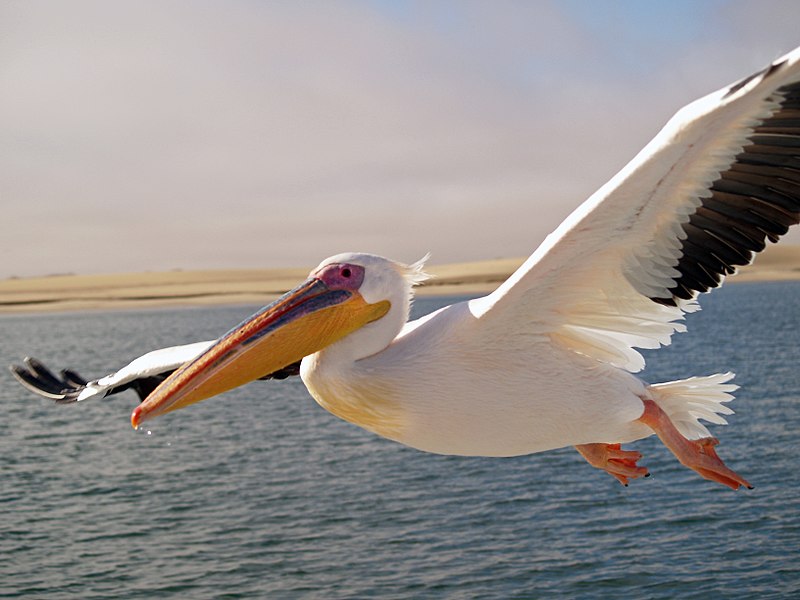OPINION: Dreaming pelicans - The healing of release and forgiveness
I was let go of my adaptive sports job in mid-March 2020. On some level, I knew this was a blessing, but on another, this was frightening.
Although I’m searching for a new job, there isn’t much available. Together with some friends and adaptive athletes, we’ve decided to pursue the founding of our own non-profit organisation. Based on research there is little doubt that there are huge gaps in opportunities to participate for adaptive athletes. But given the times, that is high unemployment, cash strapped governments and a general worldwide recession, I wondered whether starting a new organisation makes sense.
I was recently cycling with some adaptive athletes and able-bodied riders and was thinking about what kind of challenges there will be once the new organisation is launched. I was thinking — do I really want to go through this?
The overall ride was 24 miles. After we were more than halfway through, a rider with a prosthetic from his knee to the pedal started riding beside us. As he came close, he said to one of the riders, “Hey Will,” — Will has sight impairment — “guess who this is?” Another rider with our group gave Will a hint citing the prosthetic, but Will still didn’t know who it was. Finally, the rider said, “This is Lee,” which made Will very excited!
Lee is Will’s prosthetist at Hangar, a national organisation that works specifically to fit prosthetics. Will had an appointment the following Tuesday with Lee. When I worked for my past organisation, I had tried to contact Lee numerous times, but without success. Meeting Lee now was a clear sign to continue moving forward with the new organisation.
Another sign that things will work out came that evening and the following morning. That night, my wife Yasuyo and I watched Storm Boy, an Australian movie about the relationship between a young boy and a pelican. The boy raises the pelican — Mr Percival and his two brothers Mr Proud and Mr Ponder — after a hunter kills their mother. The boy’s mother and sister had been killed in a car accident, causing the boy’s father to withdraw from the world.
The boy’s father agrees to let the boy raise the birds, which he did through their adulthood. Two of the pelicans flew off but one, Mr Percival, after being let go returned to be with the boy. There is more to the story as the young boy, now a grandfather, recounts this to his granddaughter, who has also lost her mother.
The next morning at around 9:00 am I decided to walk to the small pond on the golf course in the back of our house, something I don’t ordinarily do during the day. As I neared the pond, I noticed a rather large bird swimming. Typically, I only see ducks in the pond, although once I saw a heron. As I neared the pond, I saw the outline of a pelican!
I moved closer and sat down on the bank and watched the pelican glide through the water. Why would a pelican be here in the middle of the desert?
After about 20 minutes the pelican majestically lifted from the pond and with his huge wings flew north. I rushed home to tell Yasuyo about the pelican. How could this be a chance encounter? What message was there in this meeting?
I looked up what it means to see a pelican as a ‘spirit animal’:
“This pelican symbolism teaches you a lot about letting go to make room for something better. The pelican spirit animal also brings with it release and forgiveness. When the pelican spirit animal crosses your path, you are being encouraged to forgive yourself and let go of negative feelings.
“In addition to resourcefulness, the pelican spiritual totem commonly symbolises social responsibility and active attributes, such as social, teamwork, charity, generosity and friendliness. Pelicans encourage us to develop friendly, caring and supportive relationships with members of our own communities, as well.”
I believe that the pelican is telling me to let go of the ‘fight’, to move on with my life and develop this new non-profit. The pelican is telling me to take ‘my gifts’ and use them to perform more positive actions in the world. The signs are clear: it’s time to fly.
Rosenkrantz is a columnist with THT-Perspectives and lives in Palm Desert, California with his wife Yasuyo who he met in Nepal. He has an MBA, and MA in Sociology






